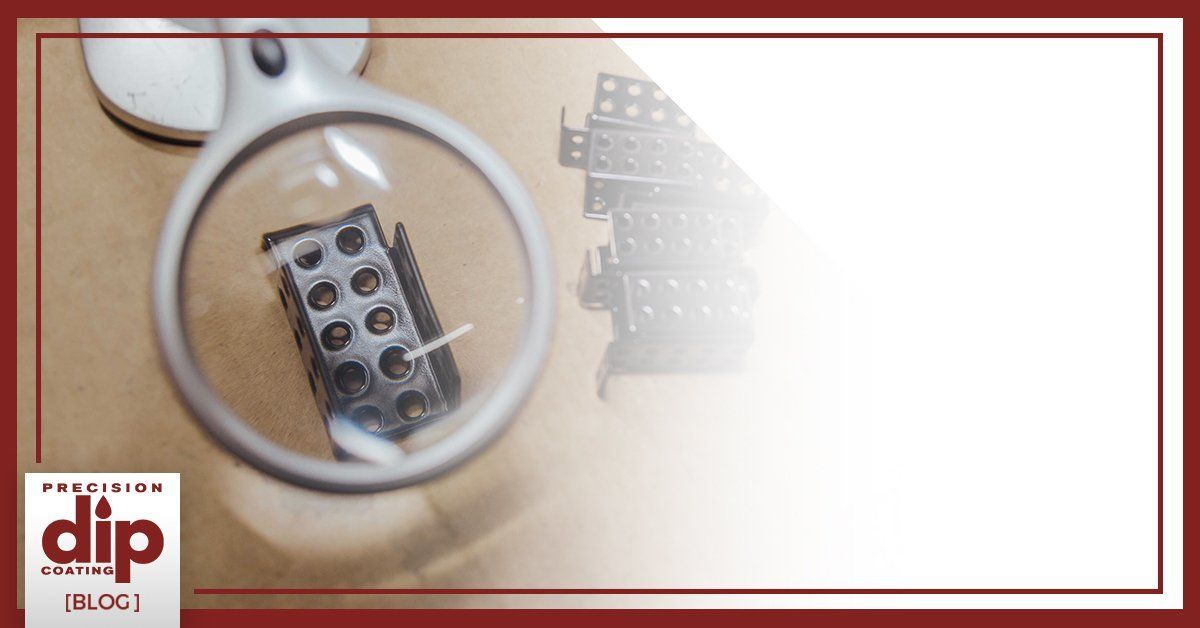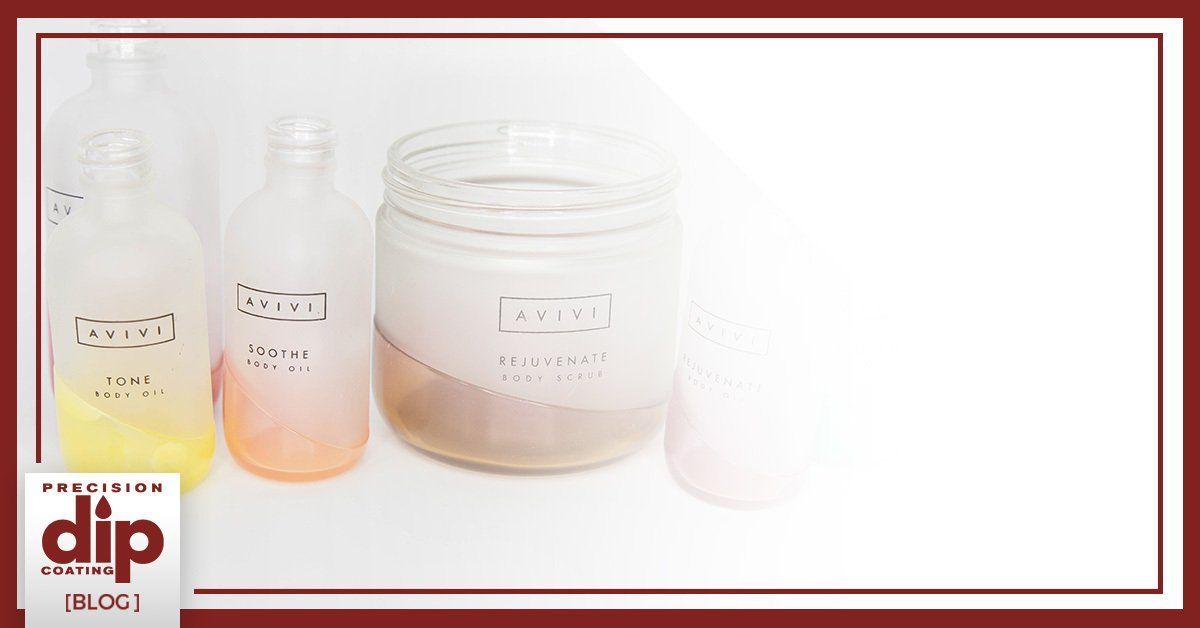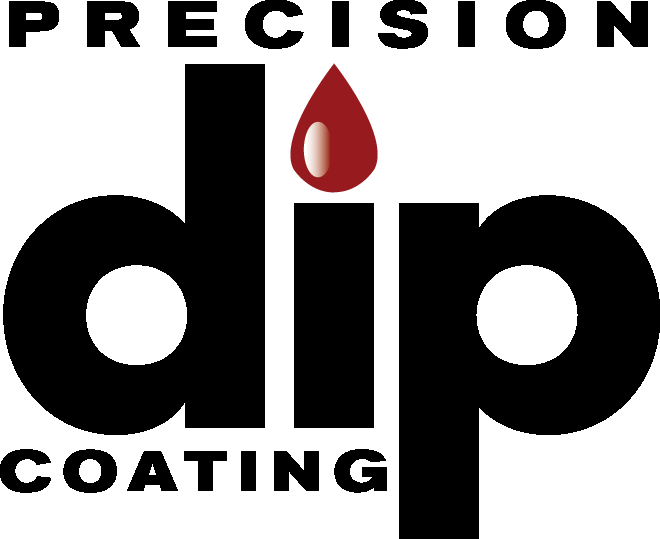Plastisol Coating Services at Precision Dip Coating
Versatile, Durable, and Aesthetically Pleasing
Discover the versatility and durability of plastisol coatings with Precision Dip Coating
professional services. Plastisol, a PVC-based coating, is ubiquitous in products such as exercise equipment, tool handles, and gas pump handles. Our dip coating process transforms the liquid plastisol into a tough, seamless finish upon heating, offering both functional and aesthetic enhancements to a variety of substrates including metals, glass, ceramics, and certain plastics.
The Dip Coating Process
We specialize in thick or selective area coatings, applying plastisol through a controlled dip process. Preheating the items before submersion into liquid PVC, followed by post-curing, allows for varied thicknesses and superior adhesion. Plastisol coating is not just about good looks. It provides:
Our Plastisol Coating Methods
Explore the range of our specialized Plastisol Coating Methods designed to cater to various product needs and applications:
Elevate Your Products with Precision Dip Coating's Plastisol Coating
Discover the unmatched quality and versatility of our plastisol coating services at Precision Dip Coating, where we do more than just coat your products—we enhance them. Our process is streamlined for simplicity, cost-effectiveness, and eco-friendliness, significantly reducing waste. Whether it's for improved grip, increased durability, or a vibrant splash of color, our skilled team is ready to deliver results that exceed expectations. Connect with us today to learn more about our manufacturing services and start transforming your vision into a vivid reality.
Contact Us
Contact Us
Related Services
For more information, call 203-805-4564, email sales@precisiondipcoating.com, or complete our contact form.
Why Choose Us
Wondering why Precision Dip Coating should be your top choice for dip coating and molding services? Here's what sets us apart:
Industry Experience
Decades of Professional Expertise
Value-Added Services & Support
Beyond Service, Added Value Support
Integrated Design & Development
Expertise From Concept To Completion
From Prototype to Production
Turning Ideas Into Reality, Refining Craftsmanship
Frequently Asked Questions
What are plastisol's greatest advantages?
Plastisol is especially popular as a plastic coating because it is:
- Extremely durable, resisting impacts, abrasions, and other damage
- Highly resistant to water and most chemicals
- Effective in extreme temperatures and hazardous conditions
- Able to improve comfort and safety
- Available in any color and with many textures and special effects
- Very cost-effective
How is plastisol applied?
Most commonly, preheated parts are dipped into liquid plastisol, then heat-cured to set the coating. Occasionally, the cold dip method is used for parts which won't withstand preheating but which tolerate heat-curing.
How does the automotive industry use plastisol?
Many parts and products in cars and trucks make use of plastisol coatings, adding comfort, safety, and helping eliminate BSR issues.
What projects are best suited to plastisol coatings?
Ideal applications for plastisol are those which take advantage of its soft, rubbery feel, excellent temperature and electrical properties, and exceptional durability.
Is plastisol a safe coating?
Yes, plastisol is non-toxic, requires no solvents, is BPA-free, and is available in phthalate-free formulations.
What are the most common uses of plastisol coatings?
Many people consider plastics and the environment to be incompatible, but it doesn't have to be that way. Plastisol is one material that is being made increasingly eco-friendly. Here are some answers to common questions about whether plastisol is an environmentally conscious choice.
What is plastisol made of?
Plastisol is made up primarily of PVC (polyvinyl chloride, made from combining electrolyzed salt water with ethylene), mixed with plasticizing agents that give it a rubbery, stretchy consistency. Traditional plasticizers were phthalate-based, but innovations in phthalate-free plasticizers allow plastisol to be made without these potentially harmful chemicals. Most formulations of plastisol will also contain heat and/or UV stabilizers, pigments, and other additives to enhance its natural characteristics.
How is plastisol environmentally friendly?
While some less scrupulous plastisol manufacturers may not produce it in the most environmentally friendly ways, using it as a dip coating is very environmentally friendly, because it:
- Produces almost no waste
- Protects coated products, extending their lifespans
- Is extremely low in VOCs, solvents, and other toxins
- Is available in safer formulations
Does plastisol have BPA or phthalates?
Plastisol does not contain bisphenol-A (BPA), and newer formulations of plastisol use phthalate-free plasticizers.
Do plastisol coatings require solvents or VOCs?
While many plastic materials do contain volatile organic compounds (VOCs) or solvents, plastisol is extremely low on both counts.
Can plastisol be recycled?
Vinyl-based plastisol is one of the most versatile and cost-effective polymer coating choices, and is suitable for thick and thin protective layers applied by traditional hot dip or cold dip methods as well as molding and casting techniques. Here are answers to common questions about colors for this popular, long-lasting coating.
What colors can plastisol coatings be?
While plastisol does come in a variety of stock colors, you can choose any colors for plastisol coatings to meet your project's needs.
Can plastisol coatings be transparent?
Yes, while stock colors are opaque, plastisol coatings can certainly be transparent, and range from completely clear to tinted transparent colors.
Are custom colors an option for plastisol?
Yes, plastisol can be custom-colored to meet project-specific requirements, including Pantone, RAL, MIL-SPEC, and other color matching options.
How is plastisol colored?
Color pigments are mixed into liquid plastisol, creating an especially consistent, even coloration throughout the coating.
Can plastisol colors include special effects?
Yes, special additives can create special effects with plastisol coatings, including:
Glow-in-the-dark
Iridescent
Metallic
Fluorescent
Translucent
Glitter
What colors of plastisol are best for my project?
If you are undecided on colors, our expert team can help you choose the most appropriate colors for your plastisol coating project. Specific colors are often selected to convey specific information such as:
- Color coding for sizes, styles, or other groupings for tools, wires, and countless other products
- Visibility, such as bright or fluorescent colors for tool handles and safety equipment
Our Blog









